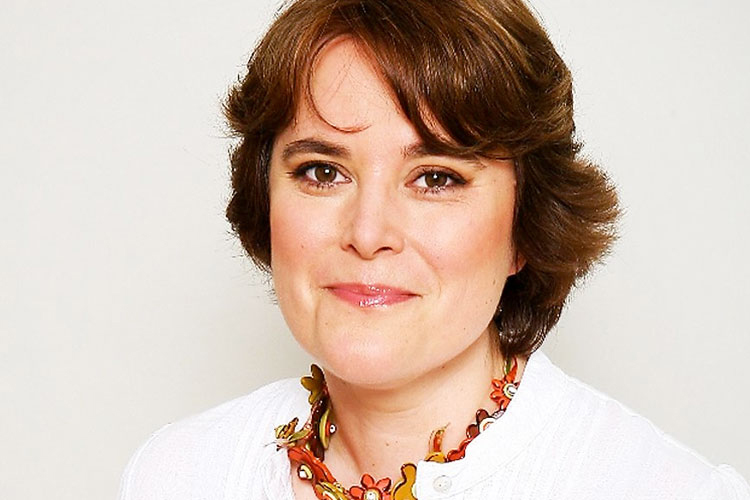From the Women’s Prize Archives.
We caught up with 2016 Baileys Women’s Prize for Fiction longlisted author Vesna Goldsworthy to discuss her nominated novel Gorsky, writing about the New Russians and why she decided to retell The Great Gatsby.
Gorsky is in many ways a re-telling of Fitzgerald’s The Great Gatsby – were you nervous to take on such revered subject matter?
I wrote the first draft quickly, almost feverishly, without rereading Gatsby or pausing to worry. I wanted to write about London, and about its East Europeans. Gatsby was an obvious myth to reach for. I assumed that everyone knows what it is about, the way everyone knows about Cinderella or Hamlet, and that readers would enjoy not so much the “what” but the “how”. The nervousness came later. One American friend said that the only greater sacrilege would be making use of To Kill a Mockingbird. But Gorsky is also its own novel, with its own voices. Fitzgerald fans might love or hate what I did, but they already have their favourite book.
You write in English, which is your third language, is this ever a challenge for you?
It is like walking on ice floes. But my second language, French, has rusted from disuse, and, after thirty years in this country, my native Serbian presents a challenge too. For example, I learned to drive in this country, so I know my car parts only in English; and let’s not even mention computing… When I write poetry in Serbian people say that my language is very pure, but that is because I don’t pepper it with anglicisms the way people in Serbia do. I am too scared that I’d start inventing new words.
Why did you want to write about New Russians in London?
I wanted to write about London first and foremost, in that bitter-sweet way that is sometimes called Chekhovian. It is a city in which I have lived, loving it – and often hating it, for thirty years. In that time it has changed from a broadly British post-imperial city into this world capital in which in some ways I feel more at home than members of my very English family; my accent stands out less! And I also wanted to write about East Europeans in London, not just Russians. The New Russians were a natural focus. I love reading Russian writing so much that I have taught myself Russian.
Who is your favourite female writer and why?
There are so many. In English, Rebecca West and her Black Lamb and Grey Falcon because she managed to understand the landscapes and the peoples of my native Yugoslavia and to write about them so well. George Eliot, because her Dorothea Brooke falls in love the way I do. Or should the same be said about Shirley Hazzard and The Transit of Venus? In Serbian, Isidora Sekulic, for her novels, but even more for her Letters from Norway published in 1914. And Russian poetry is unsurpassed – Anna Akhmatova and Marina Tsvetaeva – I could recite endless verse by heart if my Russian accent weren’t so atrocious.
Do you have a particular place where you like to write?
I dream about a life where I don’t have to go to work and can just sit at a table covered with an oil cloth under a mimosa tree with a distant view of the Mediterranean (or is that a lime tree with a distant view of the Danube?). In practice, I fritter time when I do have it, and I can write properly only when I am so gripped by a project that I can’t even tell where I am writing it. These are usually very prosaic places around my messy home: wherever I can clear a surface big enough for a notepad.



